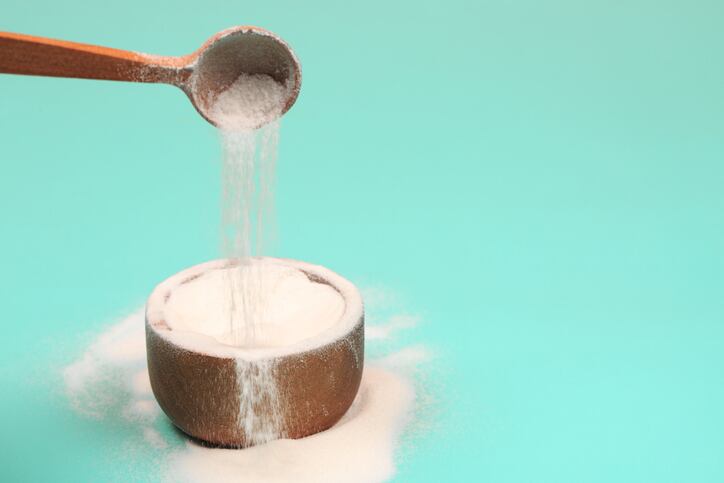UVB-induced photoaging which is the direct result of cumulative sun damage, is responsible for 90% of visible changes to the skin according to SkinCancer.org. UVB-induced photoaging damages the outermost layers of the skin and contributes to wrinkles, fine lines, loss of skin elasticity and hydration.
“Nearly everyone is exposed to UVB-induced photoaging at some level and minimal research exists on options for reducing it through nutritional supplementation,” said Brooke Alpert, RD and skin nutrition expert.
Ingredients
To study its anti-photoaging efficacy, researchers used a novel hydrolyzed chicken sternal cartilage extract.
Suhail Ishaq, president of BioCell, told NutraIngredients-USA that BioCell Collagen is a hydrolyzed chicken sternal cartilage extract dietary ingredient composed of a complex matrix of primarily hydrolyzed collagen type II peptides, chondroitin sulfate and hyaluronic acid.
“Chicken sternal cartilage closely mirrors the composition of human cartilage rich in type II collagen, chondroitin sulfate, and hyaluronic acid. Cartilage is a clean and desirable source since it's free from blood vessels, lymphatics, and nerves that are known to carry diseases and impurities. Therefore, extracting exclusively from cartilage eliminates the risk of potential contamination. It's also important to note that the synergy of biomolecules found in BioCell Collagen's unique matrix plays a significant role in its efficacy."
The new peer-reviewed study, published in the Journal of Functional Foods, revealed that oral supplementation with BioCell Collagen combined with controlled UVB exposure reduced the formation of wrinkles and helped maintain skin elasticity within 14 weeks of use.
The study, sponsored by BioCell, was conducted by an independent research team who evaluated BioCell Collagen use in hairless mice, which have skin absorption levels comparable to human skin.
Study details
Forty hairless mice were equally divided into four groups: a group receiving no UVB exposure and no supplement, a group receiving UVB exposure with no supplement and two active groups receiving UVB and different supplement dosages.
Over the course of 14 weeks, the intervention groups were supplemented once daily with BioCell Collagen at 200 mg/kg (human equivalence to 1g daily) or 600 mg/kg (human equivalence to 3g daily). For UV exposure, each animal was exposed to UVB radiation (290–320 nm) three times per week. The skin was measured and graded to determine the efficacy of BioCell Collagen on measurements of wrinkles, transepidermal water loss, skin elasticity and collagen levels.
Findings
When compared with non-supplemented controls, the study found that BioCell Collagen significantly impacted skin-related changes commonly associated with UVB-induced photoaging.
The researchers highlighted that supplementation reduced the negative effects of UVB on:
• The formation of wrinkles, including the number, area, length, and depth of wrinkles
• Skin elasticity
• Skin hyaluronic acid content
• Transepidermal water loss and matrix metalloproteinases enzyme content (commonly attributed to UVB-induced skin aging)
The report also noted that once-daily administration over 14 weeks was well-tolerated, with no reported side effects. Ishaq said these results build on previous research: “These findings are consistent with prior research on the efficacy of BioCell Collagen as a safe and effective component to a skin health routine.”
Alpert said these findings are incredibly encouraging, "especially for those seeking an effective, safe, non-invasive option for their skin routine.”
Skin and stress
“We recommend year-round usage, but stress, especially as we head into spring and summer, that BioCell is not a replacement for your sunscreen. Pairing daily oral supplementation of BioCell Collagen with a quality topical sunscreen can be the foundation of a good year-round skincare routine,” added Ishaq.
Alpert said that even staying inside to practice social distancing can carry additional skin stressors such as dryness due to HVAC systems and issues related to increased screen time.
When asked about coronavirus-related supply chain issues, Ishaq told us, “BioCell Collagen ingredient is made exclusively in the USA and Germany. Both of our warehouses have inventory, and we are shipping orders on time.”
BioCell Collagen is available as a stand-alone product or as a primary ingredient in formulations worldwide from several dietary supplement brands.
Collagen, once just used in the cosmetic industry, can now be found as functional ingredient in other sectors such as beverage, food, and health care. The current global market for collagen is estimated at $3.7 billion and expected to grow over 6.6 billion by 2025.
Source: Journal of Functional Foods
Volume 68, May 2020, doi.org/10.1016/j.jff.2020.103870
“Oral administration of a novel hydrolyzed chicken sternal cartilage extract (BioCell Collagen®) reduces UVB-induced photoaging in mice”
Authors: K. Phipps et al.




